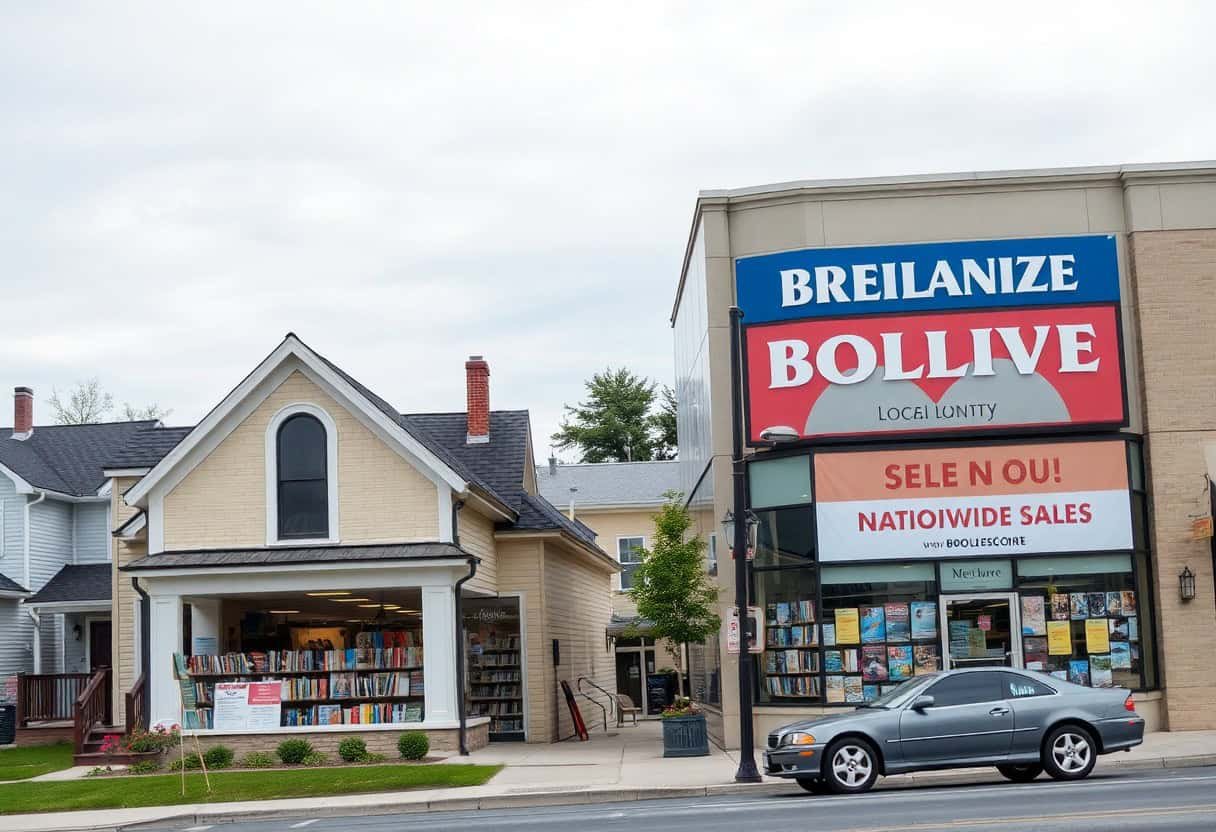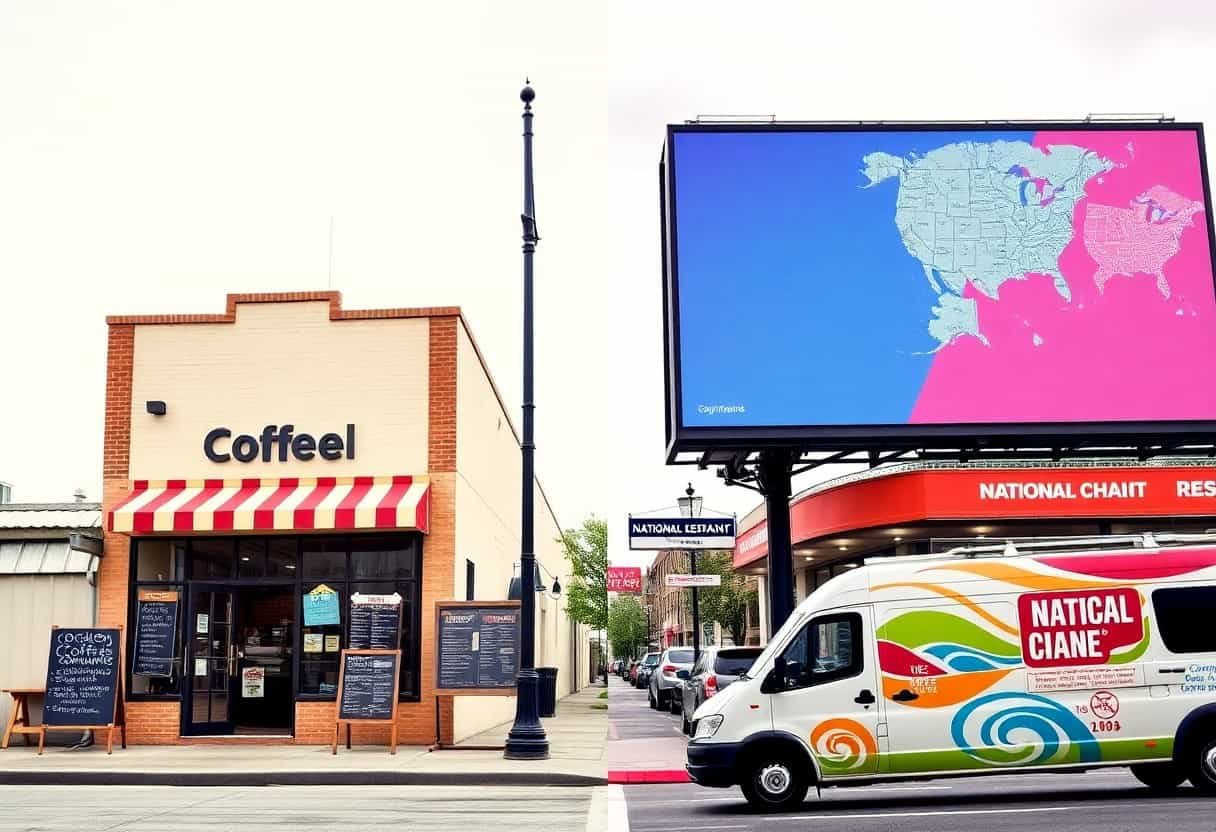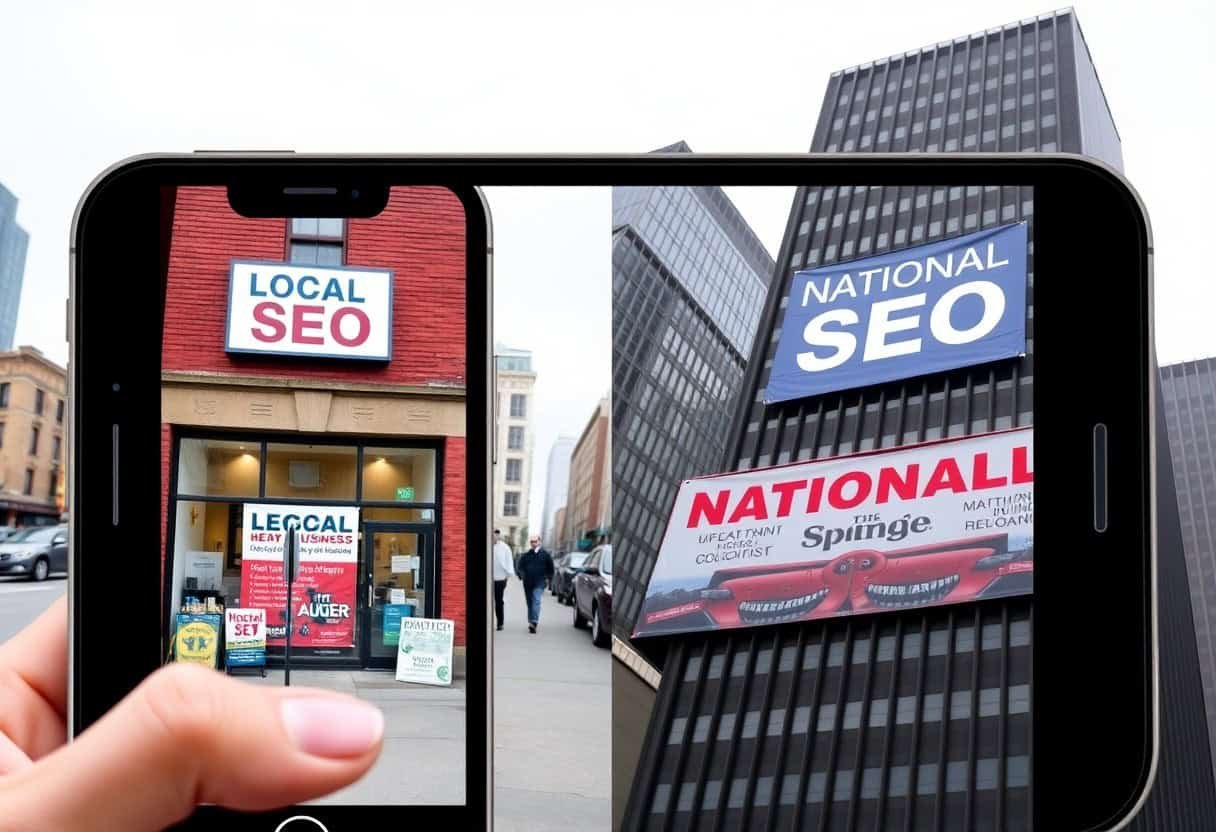It’s necessary to understand the distinctions between local and national link building to effectively boost your website’s authority. Local link building focuses on enhancing your visibility within specific geographic areas, leveraging local citations and partnerships, while national link building aims to increase your reach across a broader audience and seeks backlinks from high-authority sites on a national scale. By grasping these differences, you can tailor your link building strategies to align with your business goals and target audience.
Key Takeaways:
- Local link building focuses on gaining links from websites within a specific geographic area to improve local search rankings.
- National link building targets broader, larger-scale websites to boost authority and visibility on a national level.
- Strategies for local link building often include local business directories, community sponsorships, and partnerships, while national link building may involve guest posting and industry publications.
The Core Principles of Local Link Building
Local link building emphasizes connecting with community-specific websites to enhance your visibility in local search results. By establishing relationships with local businesses, organizations, and influencers, you can attract valuable backlinks that signal your relevance and authority within the area. A strategic approach ensures that your link profile reflects your local presence, fostering trust and recognition among potential customers.
Geographic Relevance and Its Importance
Securing backlinks from websites in your immediate geographic area significantly boosts your local SEO. Geographic relevance enhances your site’s authority for local searches, making it more likely for customers in your vicinity to find your business. Search engines prioritize local links, as they indicate a connection to the community, which is necessary for driving targeted traffic and increasing your brand’s visibility among local customers.
Community Engagement Strategies
Active participation in local events, sponsorships, and collaborations with community organizations can enhance your link-building efforts. By engaging directly with your community, you create opportunities to earn links from local news sites, blogs, and social media influencers who cover community-related topics. Initiatives like hosting workshops, participating in charity events, or sponsoring local sports teams not only build connections but also position your brand as a valued part of the community.
Implementing community engagement strategies can significantly amplify your link-building success. For instance, consider sponsoring a local event, which often leads to press coverage and backlinks from various event promotion websites. Partnering with local nonprofits can also yield link opportunities through mutual promotion. By providing valuable resources or expertise to the community, you create a foundation for local businesses and organizations to recognize your contributions, leading to natural backlinks that enhance your online presence. Engaging with the local population fosters relationships and promotes goodwill, making your brand a preferred choice in local searches.
The Mechanics of National Link Building
National link building involves strategies geared towards acquiring backlinks from authoritative websites across the entire country. This process often requires more extensive outreach, targeting high-profile online platforms that have a substantial audience. You’ll need a well-defined strategy that prioritizes quality over quantity, focusing on establishing your brand as a thought leader in your industry to earn those coveted links.
Authority and Reach: How Bigger is Better
National link building thrives on the principle that larger, more established sites can confer significant authority to your website. Acquiring links from high-ranking domains not only boosts your credibility but also enhances your visibility on a national scale. This can lead to increased referral traffic and better search rankings, as search engines perceive your site as more trustworthy.
Targeting High-Impact Platforms
Identifying and leveraging high-impact platforms is necessary for effective national link building. You should focus on established publications, influential blogs, and major industry websites that command a large audience. Getting featured in these spaces amplifies your brand’s reach and builds valuable backlinks that improve your site’s authority.
High-impact platforms often include sites like Forbes, Business Insider, and industry-specific journals, where your content can gain significant traction. Establishing relationships with editors or contributing to these outlets can result in guest posts or interviews, providing authoritative backlinks. Additionally, crafting compelling pitches that align your expertise with trending topics can increase your chances of being featured, ultimately enhancing your link profile and online presence.

Measuring Success Differently: Local vs. National Metrics
Local and national link building require different metrics to gauge success effectively. While local initiatives focus on community engagement and regional visibility, national strategies center on broader reach and authority. Understanding these differences ensures you can tailor your approach, optimize performance, and refine your tactics based on relevant data.
Key Performance Indicators for Local Link Strategies
For your local link strategies, focus on KPIs such as increased organic traffic from local searches, higher rankings for geo-targeted keywords, and the growth of backlinks from local directories or regional publications. Engaging with local influencers or community organizations can also be measured through metrics like social shares and referral traffic to your site.
National Link Building Success Metrics
In national link building, your success metrics should prioritize Domain Authority, the number of backlinks from high-authority sites, and visibility in national search rankings. Tracking brand mentions and overall traffic from diverse geographical locations helps gauge the reach and impact of your strategy across a wider audience.
For national link building success metrics, consider analyzing referral traffic to assess how well your links drive visitors to your site from various sources. You can also look at the conversion rate of this traffic, which provides insights into the effectiveness of links gathered from authoritative national websites. Utilizing tools like Moz or SEMrush can help in monitoring these statistics, allowing you to make data-driven adjustments that enhance your link strategy on a national scale.

Resources and Tools Tailored to Each Approach
Choosing the right resources and tools is vital for effective link building, as each approach—local or national—requires distinct strategies. While local link building thrives on community engagement, national link building hinges on establishing authority across broader demographics. Leveraging the right platforms can enhance your efforts and yield better results for your specific goals.
Local Resources: Instagram, Local Blogs, and Directories
Instagram serves as a dynamic platform for local link building, allowing you to showcase your brand while engaging with the community. Collaborating with local bloggers can help you tap into established audiences, while local directories like Yelp and Google My Business provide valuable backlinks and improve your discoverability in local searches.
National Resources: Major Publications and Industry-Related Sites
National link building relies heavily on securing links from major publications and industry-related sites. These links not only enhance your domain authority but also increase your visibility across wider audiences. Connecting with influential sites such as Forbes or industry-specific journals can lead to high-quality backlinks that bolster your credibility and drive targeted traffic.
For effective national link building, focus on creating compelling content that appeals to major publications and niche industry sites. Identify trending topics relevant to your industry and pitch well-researched articles or expert opinions to editors. Networking with industry influencers can facilitate introductions to editorial teams, enhancing your chances of securing valuable placements. Research shows that guest blogging opportunities on high-authority websites can lead to significant traffic increases and improved search rankings, making it a strategic focus for your efforts.
Real-World Applications: Choose Your Path Wisely
Your link building strategy should align with your business goals and target audience. Whether you operate locally or nationally, understanding the distinct implications of each approach ensures you maximize your online presence. Choose wisely, as the right path can lead to stronger authority and better search engine rankings, while the wrong one might waste resources and yield minimal results.
Case Scenarios for Local Businesses
If you own a local bakery, targeting local blogs and community events for backlinks can significantly boost your visibility. For instance, collaborating with local food bloggers or joining local business directories positions your bakery as a community staple, driving traffic from nearby customers and enhancing local search rankings.
Strategic Approaches for National Brands
National brands rely on a diverse range of high-authority links across various topics to strengthen their online presence. For example, collaborating with industry-related influencers and securing features in well-known publications can elevate your brand’s authority. Employing a content marketing strategy that includes guest blogging and creating shareable resources can also expand your reach and attract backlinks from numerous reputable sources.
Executing a successful link building campaign for national brands requires a multi-faceted approach. Focus on creating high-quality, shareable content that addresses broader topics relevant to your target audience, such as whitepapers, infographics, or case studies. Building relationships with journalists and bloggers in your industry can result in valuable features and backlinks. Additionally, leveraging social media platforms for content promotion increases visibility, encouraging others to link back to your site, which bolsters your authority and improves search rankings across a wide geographic area.
Final Words
Drawing together the insights, local link building focuses on enhancing your presence within a specific geographical area, enabling you to connect with nearby customers and local businesses. In contrast, national link building broadens your reach across the country, targeting audiences on a larger scale. Understanding these distinctions allows you to tailor your strategy effectively, ensuring that your efforts align with your business goals and target audience. By selecting the right approach, you can optimize your link building efforts to enhance brand visibility and authority.
FAQ
Q: What is local link building?
A: Local link building focuses on acquiring hyperlinks from websites that are geographically relevant to a specific location. This strategy aims to enhance visibility in local search results and connect businesses with their community. Local backlinks often come from local newspapers, business directories, or industry-specific sites.
Q: What is national link building?
A: National link building involves obtaining links from websites that have a broader reach across the entire country, regardless of geographic location. This approach targets audiences on a national scale, focusing on securing backlinks from influential websites, bloggers, or industry leaders that can drive traffic from multiple regions.
Q: How do local and national link building strategies differ?
A: The main difference lies in the target audience and the type of websites used for backlinks. Local link building prioritizes connections with local entities and relevancy to a specific area, while national link building seeks to gain exposure from well-known websites for a wider audience. Additionally, local links benefit businesses serving specific neighborhoods, while national links help brands looking to establish authority on a larger scale.

